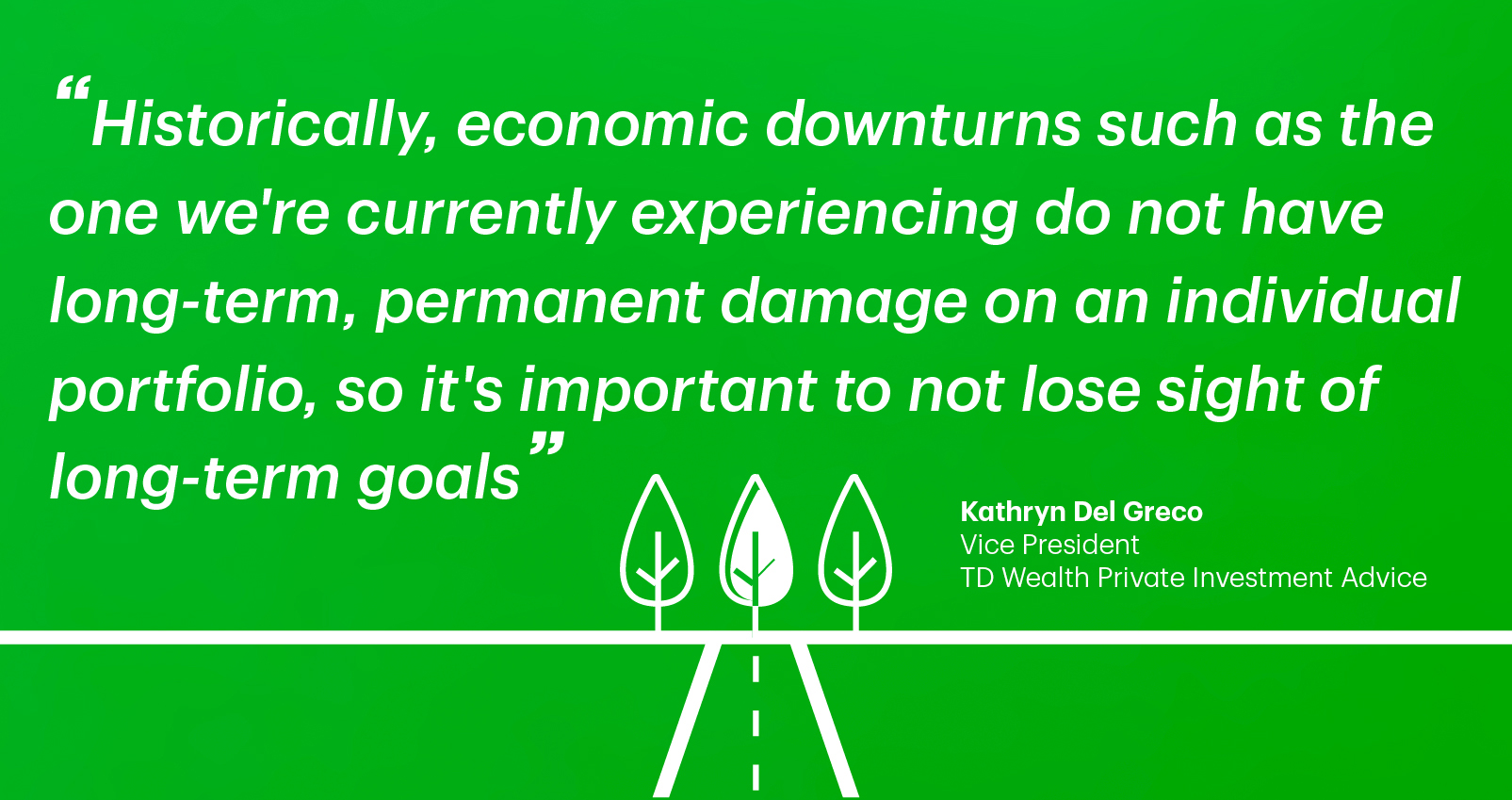For many Canadians, retirement is a realization of a lifelong dream where they can finally reap the rewards of years of hard work and dedication.
But in the face of the COVID-19 pandemic, many Canadians have been hit with unexpected challenges and uncertainties as they wait to see how this unprecedented situation will impact their retirement plans.
To help Canadians who have recently retired or are approaching retirement navigate through this difficult time, we sat down with TD Senior Financial Advisor, Gayle Shanks, from Halifax, Nova Scotia, to discuss some of the top concerns for retirees right now.
Relief is available for those who need it
The COVID-19 pandemic ignited an economic hit that impacted many Canadians, including Canadian retirees.
"The economic fallout due to COVID-19 has certainly been impactful, and unfortunately, retirees' investments are not immune," Shanks said.
To help ease the blow on retirees, the Government of Canada announced a reduction to the annual withdrawal requirement for registered retirement income funds (RIFs) by 25% for 2020. The reduction was introduced as part of an $82-billion federal relief package.
Shanks said the government recognized the negative impact the pandemic was having on financial markets and knew this decline might prompt retirees to sell their investments.
"The most common question I get from my senior clients right now is, 'Should I consider taking less out of my RIF this year and take advantage of the 25% reduction offered by the government?'" Shanks said.
The answer to this question varies on your individual financial situation and sources of income available to you, she said.
"In my experience so far, I've only had a few customers opt to reduce their RIF withdrawals this year," Shanks said. "I would suggest retirees considering this option reach out to their financial advisor for guidance."
Don’t panic about your investments
Despite the many concerns Canadians are grappling with right now, Shanks said customers – including those who are retired or close to retirement – should limit the short-term focus on their investments right now.
"Even some of my senior clients with robust portfolios have come to me asking if they should sell now to protect their retirement savings," she said. "These tumultuous times can make anyone feel insecure."
And while nobody has a crystal ball to predict the future, Shanks is urging her clients not to panic.
"I've had the luxury of helping most of my clients through the 2008 financial crisis, and from experience I can say the best thing to do is not panic about the potential devaluation of your investments right now," she said.
According to Kathryn Del Greco, Vice President, Investment Advice at TD Wealth Private Investment Advice, markets will continue to change as the COVID-19 pandemic does.
"Major economic events affect the markets, and that’s what we're seeing with COVID-19," said Del Greco.
"Historically, economic downturns such as the one we're currently experiencing do not have long-term, permanent damage on an individual portfolio, so it's important to not lose sight of long-term goals and to stay the course if you can. Additionally, you should speak with an advisor to learn more about your options or discuss concerns you have."

Del Greco said retirees should make sure they know where they stand financially and do a full assessment of where their investments stand. It's also important to list your beneficiary and make sure all accounts and investments are captured in your will and in your larger estate planning.
Conduct a check-in over the phone
With so much uncertainty in the market, it may feel like it's difficult to make a confident financial decision on your own right now. To help navigate your concerns, Shanks suggests reaching out to your financial advisor to reassess your investments and goals if you haven't done so already.
"This is the time for retirees to discuss their short- and long-term goals with their advisors," she said.
"It's important for folks to remember that even though you may be retired, your situation may have changed. This is a good time to revisit your investments to ensure those decisions are still aligned with your current situation and your future plans."
At TD, the health and safety of customers and colleagues remains the top priority. So, to help protect both your health and your finances, customers are encouraged to transact from home as much as possible.
"Since the COVID-19 pandemic started, most of my meetings with clients – about 99 per cent – have been successfully conducted over the phone," Shanks said.
"It's important for retirees to be able to connect with their advisors during this difficult time for advice and reassurance, so to help our customers get the support they need, TD has set up priority access for seniors," Shanks said.
If you're a TD customer who is 75 years of age or older, the bank has implemented a new process to identify your call automatically and prioritize it in the queue. Additionally, in all provinces but Quebec, branches are temporarily dedicating the first opening hour to serve seniors that require in branch service.
Learn more about the different ways to bank through TD and check out all the digital tools available to help you manage your finances.
